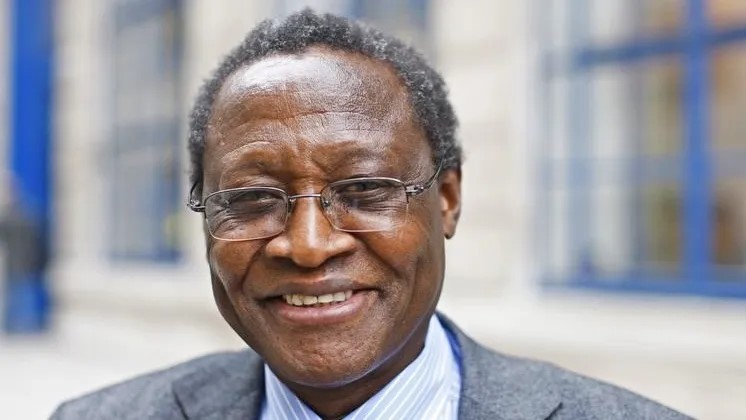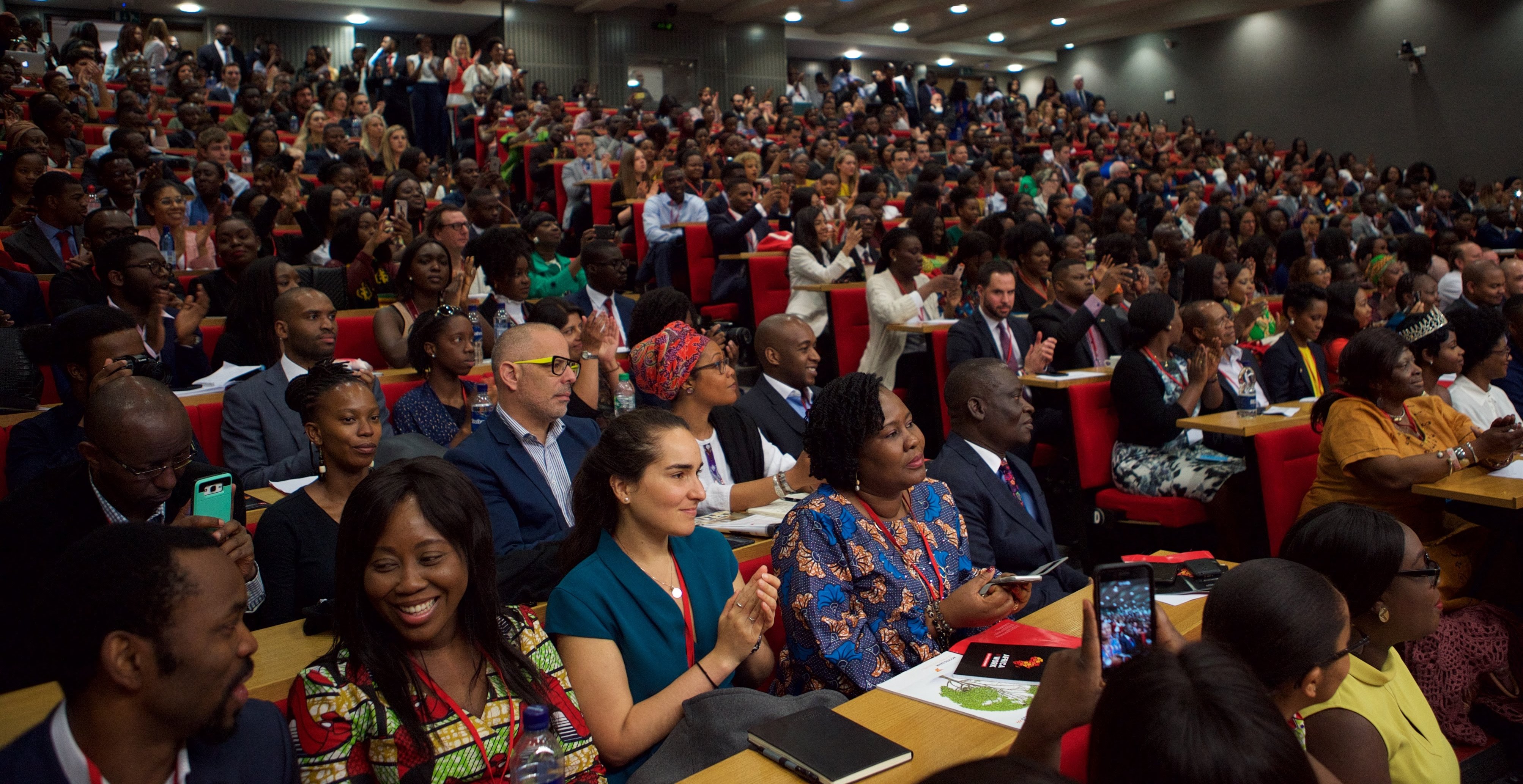
Thandika Mkandawire was a development economist, former refugee, and the inaugural chair in African Development at LSE. He criticised the predominant neo-liberal development theories of the 1990s saying they lacked an African perspective.
Mkandawire was born in Zimbabwe in 1940 but was raised in Zambia and Malawi. He became involved in Malawi’s independence struggle protesting first on the streets and then through his journalism. He moved to the US to study and in 1965, while visiting Ecuador, his passport was revoked by the Malawian government. This left him persona non grata until gained political asylum and eventually citizenship in Sweden. He did not return to Malawi until 1994 after 30 years in exile.
In his academic life, Mkandawire was a founding member of the Zimbabwe Institute of Development Studies, and The Council for the Development of Social Science Research in Africa (CODESRIA), in Dakar, Senegal. After that, he served as director of the UN Research Institute for Social Development in Geneva before joining LSE as the Chair of African Development. His final academic post was the Olof Palme Professor for Peace at the Swedish Institute for Future Studies. Thandika Mkandawire died in Stokholm on 27 March 2020.
Chopping Bretton Woods down to size
In the 1980s and 1990s, the key drivers of development thinking were neoliberalism and the politics of the Bretton Woods Institutions such as the World Bank and IMF. They championed structural adjustment programmes that broadly cut government spending, focused welfare spending on primary education and poverty reduction, and liberalised the economy. These policies were viewed by international institutions as the best route to economic development and their implementation was a condition of any international financing. These policies framed development as an inherently internal challenge and blamed African governments and politicians for the performance of their economies.
Mkandawire used a long-term view of history combined with rigorous economic analysis to expose the flaws in this way of thinking.
Mkandawire showed how African economies and state capacity were dependent on external price swings. Many African countries are rich in natural resources. When global commodity prices were high, domestic savings rose and states were able to invest and strengthen their capacities, but when prices dropped, savings declined, and governments had to rein in their spending.
"You can say crap [about] Africa and you know there will be no response. I have taken it upon myself that, as long as I live, I will review what has been written about Africa and respond."
According to Mkandawire, African economies and their governments were at the mercy of global factors. He proposed the prioritisation of domestic growth to help stabilise the economy and the government’s revenue. To achieve this, he argued, governments needed to invest in social welfare programmes for everyone, not just the country’s poorest. This public investment would not just result in redistribution and poverty reduction, but increase people’s productivity and help make people, not exports, the basis of growth, prosperity, and social solidarity.
African development by Africans
One of Mkandawire’s classic papers is “Thinking about development states in Africa”. In it, he emphasised the role of ideology and political vision in the development process. In Mkandawire’s words, a development state is a state “whose ideological underpinnings are developmental and one that seriously attempts to deploy its administrative and political resources to the task of economic development.” This approach stands in direct contrast with the policies of the Bretton Woods institutions, which had advised African states to adopt de-politicised technocracies to ensure the competitiveness of their economies which would lead, inevitably, to economic development.
At the time, many economists regarded African states as incapable of being developmental due to their perceived endemic clientelism and neo-patrimonialism. Mkandawire’s article showed that post-independence, many African states had been developmental in nature and had made great strides politically, economically, and socially as a result. In some cases, African economies outpaced their counterparts in other regions and had done so with smaller bureaucracies and public administrations. Mkandawire also argued that the very policies being proposed, and often imposed, by the Bretton Woods institutions, were themselves to blame for the inability of African states in the 1990s to set themselves up on a developmental footing.
I am very interested in the development of nations. I am African so I don’t have a choice.
In the CODESRIA book, Our continent, our future: African perspectives on structural adjustment, Mkandawire and his co-authors continued their critique of structural adjustment programmes and laid out a counterargument against their ubiquitous deployment.
This work showed how external forces had played a major role in the economic performances of African states since independence. As a result, changing the domestic spending priorities of governments would have little impact on economic development if these economies remained unsheltered from geopolitical headwinds. Not only was the book vital in challenging accepted thinking on development at the time, but also represented an important critique of foreign-led scholarship by a network of African economists about a set of policies that were being rolled out across Africa by non-Africans.
Mkandawire was appointed Chair in African Development at LSE in 2009. The following year, he delivered his inaugural professorial lecture.
 Thandika Mkandawire inaugural professorial lecture
Thandika Mkandawire inaugural professorial lecture
In his lecture, Mkandawire argued that for Africans, development was an emancipatory project, and not simply a matter of concerned humanitarians helping distant strangers, as it had been depicted by some in the West.
The aspirations driving development in Africa are not foreign impositions, he argued, but an African response to historical experiences and societal needs.
To meet the demands of this project, Mkandawire highlighted the primacy of knowledge acquisition - particularly from higher education - on the continent which had been dramatically underfunded in favour of primary education because of structural adjustment policies.
To “catch up” Africa must run while others walk and so must be prepared to think and act radically to meet the collective needs of the continent. Mkandawire argued that Africa’s universities had a vital role to play in this focused knowledge creation.
The lecture was later turned into a journal article entitled “Running While Others Walk: Knowledge and the Challenge of Africa’s Development.”
Mkandawire argued that African states should be developmental, democratic, and inclusive. Democratic in the sense that they had deliberative governments with respect for rights, and inclusive in providing all citizens with a decent living. These were the means, not the ends of development for Mkandawire.
He dedicated his life to social policies that enhanced people’s productive capacity, protected them against the vagaries of life and the market, and were redistributive with the goal of enhanced social cohesion and solidarity.
To develop, Mkandawire believed that countries needed to know themselves and their history so that they could understand the initial conditions from which to chart future progress and that knowledge production and acquisition were essential to any positive future for Africa.
“Thandika Mkandawire was a truly inspiring colleague; deeply principled, profoundly creative and generous with his time and scholarship. He co-taught the African Development course within the international development department at the LSE and today, the course remains structured around his core contributions: the importance of intellectual autonomy, his focus on long-term development and his marriage of social and economic policies within a common transformative vision. There will never be another Thandika Mkandawire, but I sincerely hope that there will be many intellectual offspring, ready to uproot the status quo, with his ideas and example.” Laura Mann, Associate Professor in International Development, LSE.
Major publications
Mkandawire, T., & Olukoshi, A. (1995). Between liberalisation and oppression: the politics of structural adjustment in Africa. Codesria.
Mkandawire, P. T. (1997). Crisis management and the making of ‘choiceless democracies’ in Africa.
Mkandawire, P. T., & Soludo, C. C. (1999). Our continent, our future: African perspectives on structural adjustment. Idrc.
Mkandawire, P.T. (2001) “Thinking about developmental states in Africa.” Cambridge journal of economics3 (2001): 289-314.
Mkandawire, T. (2002). “The terrible toll of post-colonial ‘rebel movements’ in Africa: towards an explanation of the violence against the peasantry”. The Journal of Modern African Studies, 40(2), 181-215.
Mkandawire, P. T, and C.C. Soludo, eds. (2003) African voices on structural adjustment: A companion to our continent, our future. Africa World Press.
Mkandawire, T. (2005). Targeting and universalism in poverty reduction. UNRISD.
Mkandawire, T. (2005). African intellectuals: Rethinking politics, language, gender and development. Zed Books.
Mkandawire, T. (2007). ‘Good governance’: the itinerary of an idea. Development in practice, 17(4-5), 679-681.
Mkandawire, T. (2010). “On tax efforts and colonial heritage in Africa”. The Journal of Development Studies, 46(10), 1647-1669.
Mkandawire, T. (2011). “Running while others walk: Knowledge and the challenge of Africa’s development”. Africa Development, 36(2), 1-36.
Mkandawire, Thandika. (2015). “Neopatrimonialism and the political economy of economic performance in Africa: Critical reflections.” World Politics 3: 563-612.